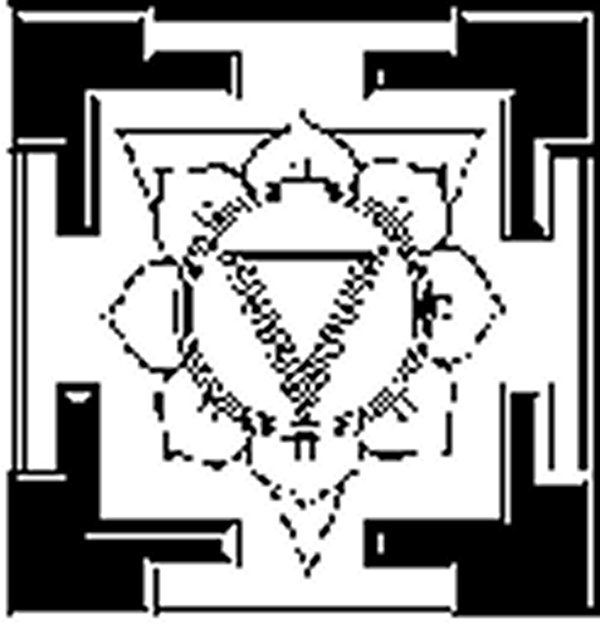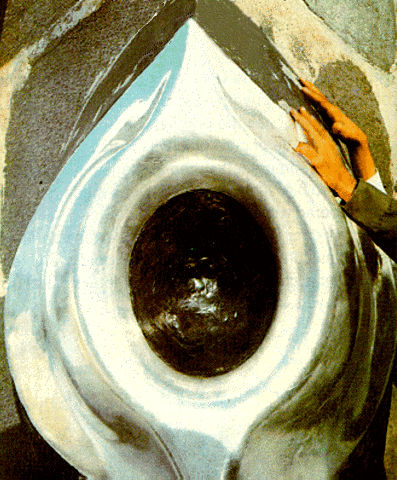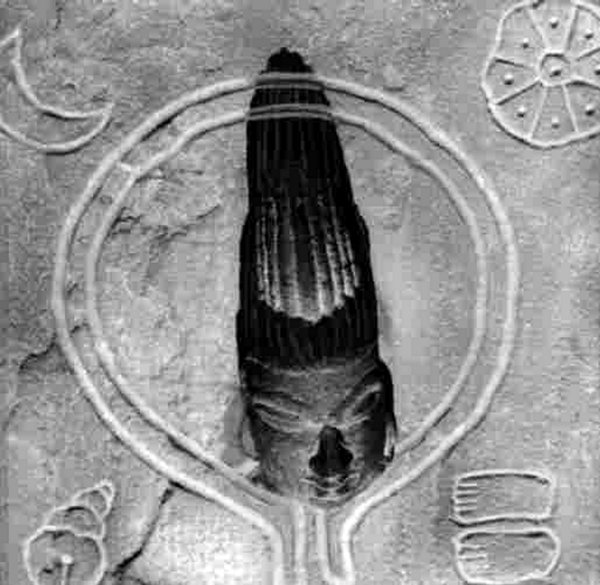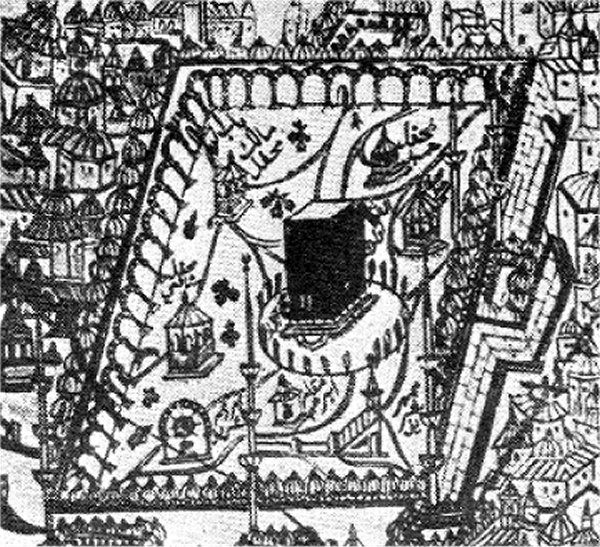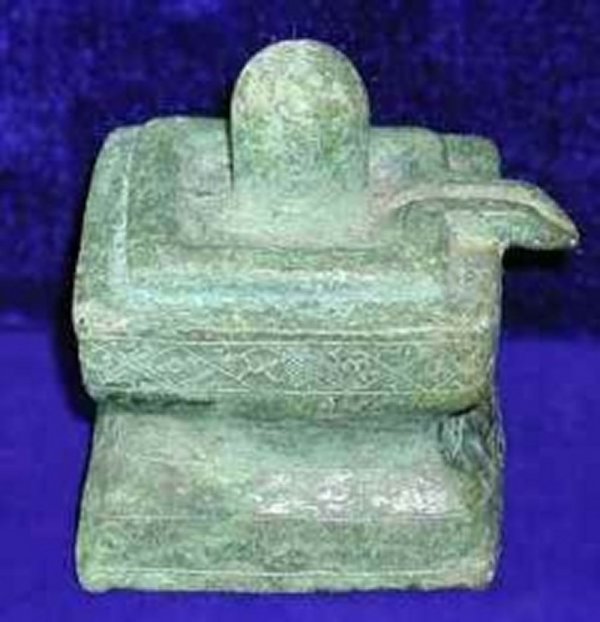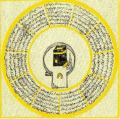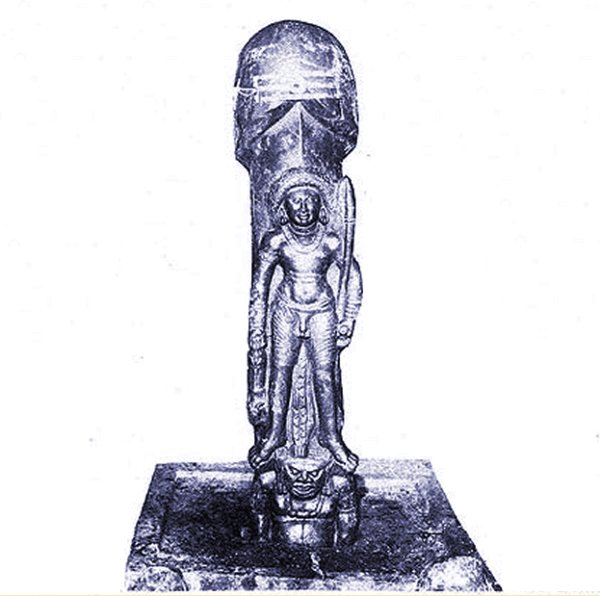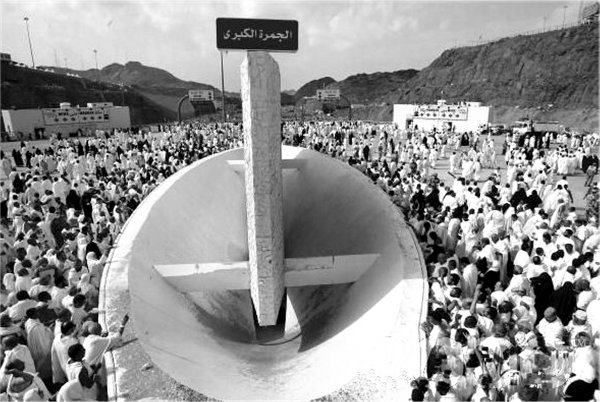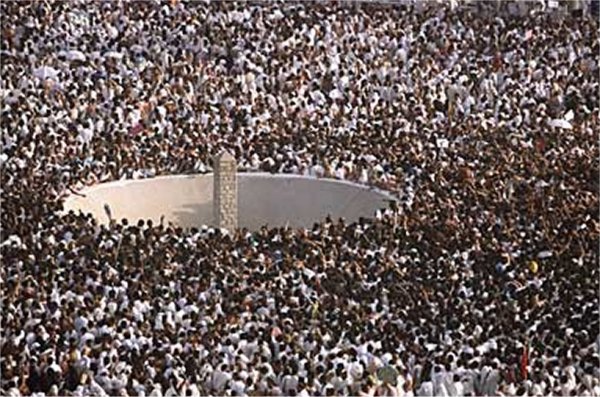Haram
Symbol

by Volker Doormann
"Allah - surely nothing is hidden from
Him in the earth or in the heaven."
Hareem is Arabic for
women — plural. Hormah is woman. Hareem is the women
of the house. Hormah
comes from Arabic haram, holy,
sacrosanct, sanctuary. "Most surely the first house
appointed for men is the one at Bekka (Mecca), blessed and a guidance for the nations.
In it are clear
signs, the standing place of Ibrahim ..". The Kuran talks about Bekka (the older
name of Mecca) being the first house of worship appointed for mankind.
It also
addresses this place as Umm ul-Qurâ i.e., Mother of the
Settlements.
The actual structure of the
Kaaba has been demolished
and rebuilt several times in the course of its history.
Edward Gibbon writes about the Kaaba and its
existence before the Christian era in his book:
"The
genuine antiquity of Caaba ascends beyond the Christian era: in
describing the coast of the Red sea the Greek historian Diodorus has remarked,
between the Thamudites and the Sabeans, a famous temple, whose superior sanctity
was revered by all the Arabians; the linen of silken veil, which is
annually renewed by the Turkish emperor, was first offered by the Homerites, who
reigned seven hundred years before the time of Mohammad." Diodorus Siculus was a Greek historian of 1st
century BC who wrote Bibliotheca Historica, a book describing various parts of
the discovered world. The following lines are the English translation of Greek
quoted by Gibbon from the book of Diodorus Siculus (Diodorus of Sicily)
describing the 'temple' considered to be the the holiest in the whole of
Arabia.
'And a temple has been set-up there, which is very holy and exceedingly
revered by all Arabians.'
G E von Grunebaum says:
"Mecca is mentioned by Ptolemy, and the name he gives it allows us to
identify it as a South Arabian foundation created around a sanctuary." 
The Bible also mentions about the valley of
Baca in connection with the pilgrimage. Below is the quote from Psalms 84
"To the chief Musician upon Gittith,
A melody for the sons of Qorach
('Korah' => Koran):
How beloved are thy dwelling places, O LORD of hosts!
My
soul belongs to end for the courts of the LORD: my heart and my
flesh sings out for the living 'El (God).
The bird hath found
a home, and the swallow a nest to lay her young, as altar, O LORD
of hosts, my King, and my God.
Blessed are they that dwell in
a house: they will be still praising thee. celah (pause)
Blessed is the man whose strength is inside his heart; in whose
heart are the path.
Who passing through the valley of Baca
make it a well; the rain also cover the B@rakah.
They
go from strength to strength, to Tsiyown ('parched place')
see the gods (elohim).
LORD God of hosts, hear my prayer:
give ear, O God of Jacob. cehla (pause)
See, God
our shielder, and look upon the face of the mashiyach
(messias).
The day in courts is better
than a thousand. I choose a doorkeeper in the house of my God, than
to dwell in the home of wickedness.
The LORD God is sun and
shield: the LORD will give grace and glory: no good thing will he
withhold from them that walk uprightly.
O LORD of hosts, blessed
is the man that trusteth in thee."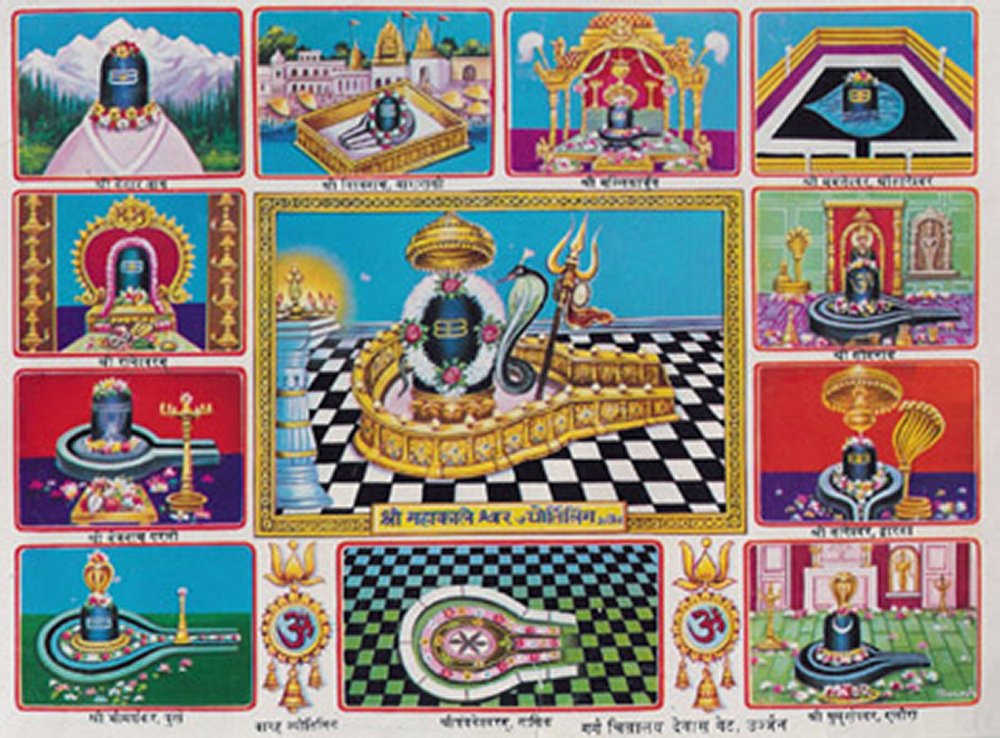
Shiva
lingam pictures with the black Shiva symbol.
There can be
recognized some similarities between the Vedic symbol and the Haram
symbol in Mecca.
|
|
|
|
Yantra
symbol from India |
Holy
symbol
in Mecca with black stone inside |
|
|
|
|
A Vedic tradition in India
shows a black stone |
Old map
of Haram in Mecca with black stone in the center
surrounding by an open circle |
|
|
|
|
Shiva lingam from
India |
Haram in Mecca |
|
|
|
|
Shiva
lingam symbol |
Old map of Haram in Mecca |
|
|
|
|
Shiva lingam symbol on a wall in India |
Mecca |
|
|
|
|
India |
Mecca |
|
|
|
|
India |
Mecca |
|
|
|
|
India |
Mecca
|
|
Next to Mecca in Mina also can be found stone pillars in a center of a circle
|
|
|
|
|
|
Shiva
symbol India |
Mina |
|
|
|
|
India |
Mina |
|
|
|
|
India |
Mina |
|
|
|
